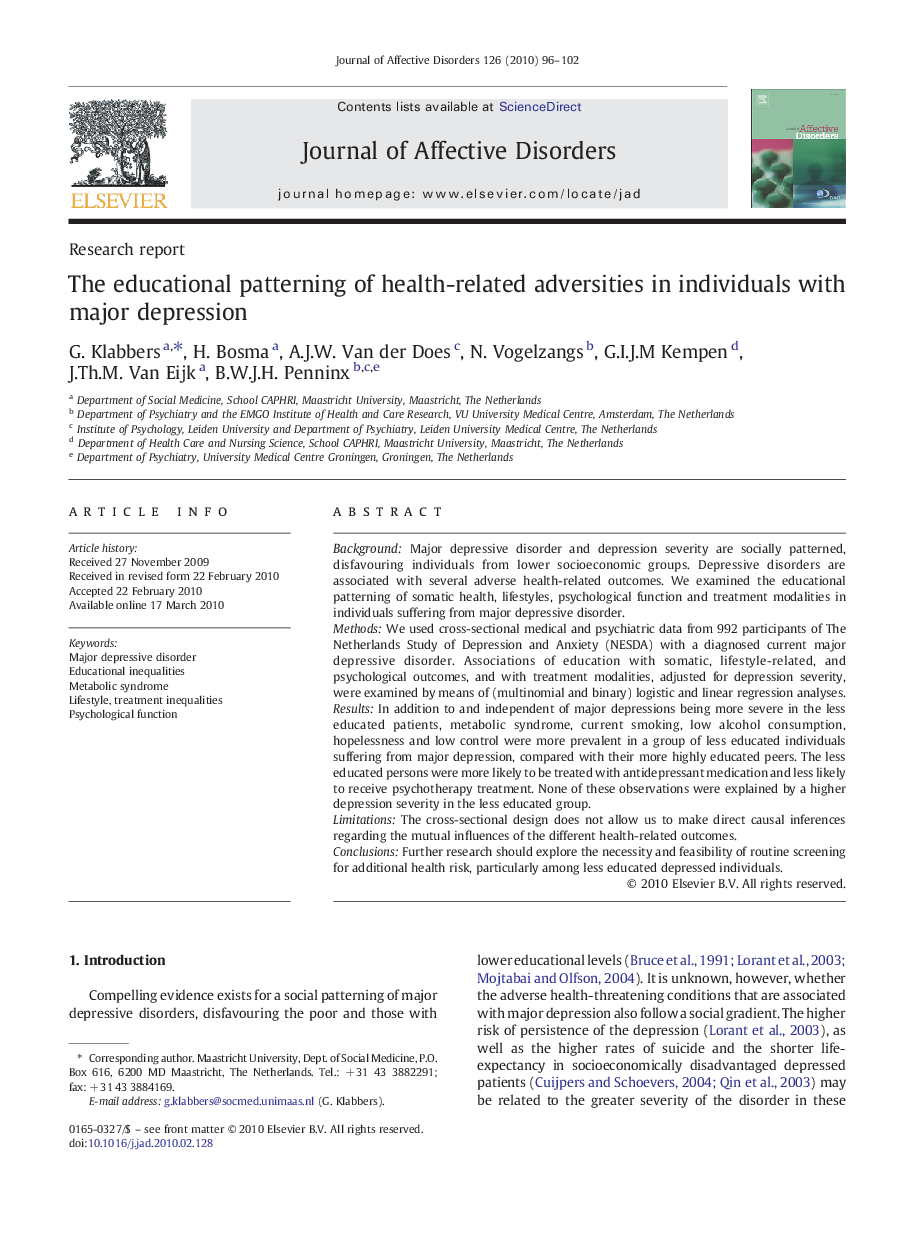| Article ID | Journal | Published Year | Pages | File Type |
|---|---|---|---|---|
| 4186769 | Journal of Affective Disorders | 2010 | 7 Pages |
BackgroundMajor depressive disorder and depression severity are socially patterned, disfavouring individuals from lower socioeconomic groups. Depressive disorders are associated with several adverse health-related outcomes. We examined the educational patterning of somatic health, lifestyles, psychological function and treatment modalities in individuals suffering from major depressive disorder.MethodsWe used cross-sectional medical and psychiatric data from 992 participants of The Netherlands Study of Depression and Anxiety (NESDA) with a diagnosed current major depressive disorder. Associations of education with somatic, lifestyle-related, and psychological outcomes, and with treatment modalities, adjusted for depression severity, were examined by means of (multinomial and binary) logistic and linear regression analyses.ResultsIn addition to and independent of major depressions being more severe in the less educated patients, metabolic syndrome, current smoking, low alcohol consumption, hopelessness and low control were more prevalent in a group of less educated individuals suffering from major depression, compared with their more highly educated peers. The less educated persons were more likely to be treated with antidepressant medication and less likely to receive psychotherapy treatment. None of these observations were explained by a higher depression severity in the less educated group.LimitationsThe cross-sectional design does not allow us to make direct causal inferences regarding the mutual influences of the different health-related outcomes.ConclusionsFurther research should explore the necessity and feasibility of routine screening for additional health risk, particularly among less educated depressed individuals.
